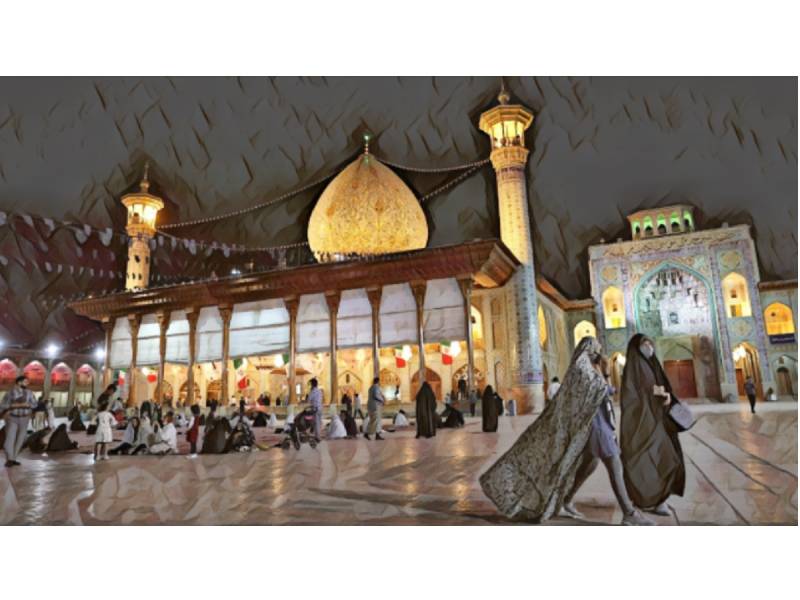
Since Iran's participation in Syria, Iraq and Palestine against ISIL/ISIS and other religiously inspired and funded groups aimed at destabilising Syria and Iraq, and Israel's occupation and violence against Palestinians, Iran has witnessed an international-level opposition from the Western powers, the EU, Israel and their allied groups within and beyond the region of Middle East.
The assassination attempts on some of Iran’s finest scientists like Mohsin Fakhrizadeh, engineers, diplomats and army officials such as General Qassem Soleimani are just a few of the retaliatory actions against Iran by forces that resent its role in Iraq, Syria and occupied Palestine.
The assassinations of Haj Qassem Soleimani and Mohsin Fakhrizadeh, and the protests sparked by the death of Mahsa Amini, can all be seen as part of a bigger response and revenge against Iran by those forces who lost out to Iranian influence. The recent attack at the Shah Cheragh Shrine in Shiraz is also of the same nature – and so, conceivably it could be inspired and supported by any of those angry actors.
In fact, the assassination of Gen Soleimani, in the words of Arash Azizi, the author of the book The Shadow Commander, was politically similar to murdering Iran’s vice president. After all, Gen Soleimani was the second most powerful figure in the Iranian political structure. However, his role was not just limited to Iran. His efforts against ISIS and other groups in Iraq and Syria often earned him a place in global headlines. In the Iranian view, he helped Iraq liberate its cities from ISIS, helped the Syrian government against foreign-funded terrorism and militias, and also helped Palestinians against Israeli aggression. His assassination, seen from this perspective, was à retaliation for his actions against these organisations which resulted in frustrating their handlers' goals for the West Asian region.
Similarly, the unfortunate death of Mahsa Amini resulted in the direct and indirect involvement of Western powers, aimed at bringing a shift in the power structure of Iran. However, like many other events, these protests achieved little, as the government is still intact and functioning as it used to be. Moreover, this government has increased its efforts against regional extremist groups. Additionally, Iran also has reaffirmed its position on Palestine.
And as it has been in the past, these efforts are again countered by the forces negatively impacted by Iranian policies.
The recent horrifying terrorist attack at the Shrine of Shah Cheragh has sent shockwaves throughout the nation: it is the second attack in a year. The attack claimed the lives of two visitors to the shrine (Zaireen) and left several injured. The assailant entered the shrine through Bab al Mehdi, an entrance typically frequented by visitors seeking solace and connection to their faith. The gunman's sudden and ruthless firing spree was met with unexpected bravery as a visitor valiantly fought back, ultimately helping to apprehend the terrorist. The terrorist still possessed eight full magazines when apprehended.
This attack can be analysed via different aspects.
Firstly, with the approaching death anniversary of Mahsa Amini, it is possible that this attack was intended as a catalyst for renewed demonstrations. The incident is still fresh and the forces who in the past have several times tried to destabilise Iran by fuelling its domestic and internal issues could be behind this attack to start a new wave of uprisings against the state.
Secondly, suspicions have arisen about potential external involvement. Recent reports from the Tehran Times have suggested that the US is keenly interested in destabilising Iran by covert support to other elements. In this report, it was claimed that the US offered the Taliban a release of their frozen assets, in exchange for destabilising Iran.
For its part, ISIS has released a video claiming responsibility for the attack – the same group was involved in earlier attacks.
Iran has been targeted again and again and with every possible tool that its enemies have. Sanctions, attempts to isolate Iran diplomatically, cyber attacks and assassinations are regular methods, and yet Iran remains firm in its policies. Foreign Affairs mentioned in an article that the isolation period of Iran has ended and the country feels more powerful and more secure than it has ever been before.
In the meantime, Iran's battle against terrorism and external pressures has kept its momentum. From the fight against ISIS to grappling with geopolitical tensions, the nation has consistently displayed resilience and determination.
As the nation mourns the loss of lives and grapples with the aftermath of this attack, one thing remains clear: Iran's determination to safeguard its sovereignty and security against external forces remains intact. These sacrifices, tragic as they are, only fuel the country’s collective resolve to confront challenges head-on. While the immediate future might be uncertain, it seems that the nation's commitment to fighting internationally supported extremist groups remains unshaken.

